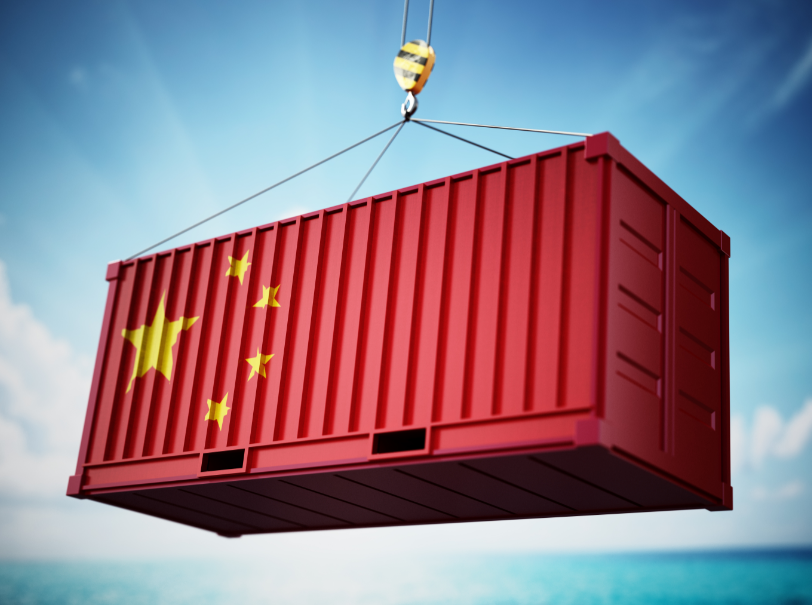
Amid the tumult of economic challenges across its property sector and growing trade tensions with the West, China has drawn on Belt and Road Initiative (BRI) relationships in the past month. However, the UK’s AI Safety Summit will shine a spotlight on the lightning rod issue dividing China and the US, as discussions on national security and regulating the new technology get underway today (1 November).
The IOE&IT Daily Update summarises the latest trade-related stories and developments from China.
AI safety clampdown
Ahead of the AI Safety Summit, scientists from China’s delegation have called for greater AI controls than those proposed by the UK, US and EU.
Computer scientist Andrew Yao advocated for tough regulatory measures including mandatory registration and audits of advanced AI systems, an international regulatory body and the requirement that 30% of research budgets are allocated to AI safety, the FT reports.
The announcement follows several months of speculation about whether a Chinese delegation would attend the summit due to international concerns about the technology’s applications in China.
Hawkish members of the UK Conservative Party had criticised China’s presence at the event with former prime minister Liz Truss posting a letter to X (formerly Twitter) in which she stated China has “fundamentally different attitudes to the West about AI, seeing it as a means of state control and a tool for national security”.
Similarly sceptical beliefs about China’s AI intent motivated the US to impose new export controls on semiconductors in September, triggering retaliatory controls on graphite from China.
Yao’s recommendations align with China’s recent Global AI Governance Initiative declaration:
“We must adhere to the principle of developing AI for good, respect the relevant international laws, and align AI development with humanity’s common values of peace, development, equity, justice, democracy, and freedom.”
Considered the first major event on AI safety, the summit at Bletchley Park will also be attended by world leaders such as European Commission president Ursula von der Leyen and US vice president Kamala Harris.
The Chinese delegation also includes representatives from e-commerce giant Alibaba and Tencent, creator of super-app WeChat.
Belt and Road
Last month (17–18 October), China staged its third annual Belt and Road Forum. Previously held in 2017 and 2019 before stringent Covid lockdowns nixed 2021’s event. The forums foster China’s Belt and Road Initiative (BRI) by bringing together countries seeking to emulate China’s path towards economic development.
This year also marked a decade since the start of the programme, which aims to emulate historic ‘silk road’ trading routes and better connect Asia, Africa and Europe through China-funded infrastructure projects.
Reuters reported that this forum was the most sparsely attended to-date, with only 23 heads of state or government present, compared with 37 in 2019.
However, representatives from over 130 countries still made an appearance and US$97.2bn worth of cooperation projects were signed by the end of the forum.
Xi used his keynote address to announce a pivot away from funding large infrastructure projects towards leaner, greener initiatives like e-commerce platforms and digital finance.
Investment drain
Another notable announcement from the forum was the removal of restrictions on foreign investment applicable to the manufacturing sector. This comes during a marked downturn in both manufacturing output and foreign direct investment (FDI).
Figures from the sector’s purchasing manager’s index (PMI) fell to 49.5 in October, down from 50.2 in September. Moving below the critical 50-threshold indicates industry contraction.
The FT reports that double-digit FDI losses have been recorded since May. A 34% fall was posted in September, a sharp deterioration from the 15% jump when zero-Covid lockdown measures ended at the beginning of the year.
Brad Setser, senior fellow at the Council on Foreign Relations, said that “foreign companies are no longer reinvesting back in China” and are “getting [their] profits out of the country as fast as they can”.
It’s not just businesses becoming sheepish; Bloomberg reports that recent wobbles in China’s economy have prompted the rich to sneak their wealth out of the country.
Using an underground network of banks, concerned citizens are able to move money overseas in amounts larger than the government’s US$50,000 limit on wire transfers.
The process isn’t without risk. Using the network is illegal, and can result in fines of up to 30% of the transfer value or even jail time in instances where significant values are involved.
New friends
Amid ongoing tensions with the West, China moved to strengthen its relationship with Columbia, a noted South American ally of the US.
Upgrading their relationship to a “strategic partnership” last week (25 October), they signed an agreement outlining “12 co-operation instruments” to foster closer ties. This included collaboration across green energy and technology, in addition to sanitation protocols that would facilitate greater Columbian quinoa and beef exports.
Columbian president Gustavo Petro said the two countries had “become good friends and partners for win-win co-operation and common development”.
Petro followed the friendliness with a pivot to strategy, describing China ties as the type of relationship “Colombia has to build around an increasingly multipolar world”.


